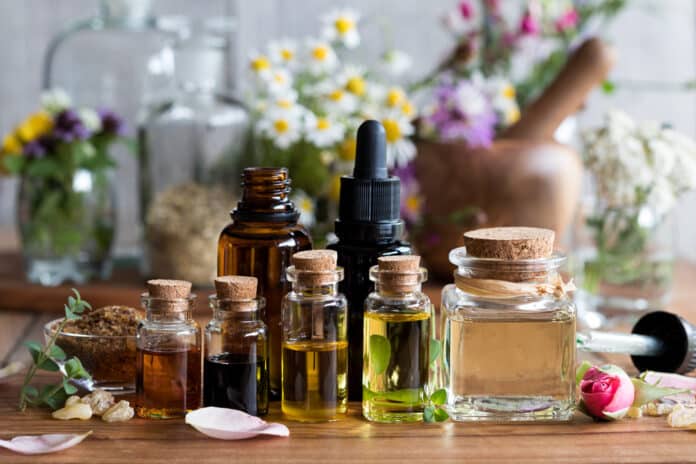
Essential oils can be effectively used alone or in combination with other oils. However, limited scientific research suggests essential oils are also useful for high blood pressure. This article teaches you about 6 essential oils to fight high blood pressure.
Essential Oils to Lower Blood Pressure
Here are 6 essential oils that are recommended by experts who advocate their use for the treatment of high blood pressure:
Cedarwood
Cedarwood essential oil can boost relaxation and temporarily decrease heart rate.
Bergamot
Bergamot essential oil can lower blood pressure and heart rate.
Frankincense
Frankincense essential oil may regulate your heart and reduce stress levels.
Jasmine
Jasmine essential oil might reduce your tension and nervous system.
Citronella
Citronella essential oil helps to ease stress. Eventually, this can lower blood pressure.
Lemon balm
Lemon balm essential oil may decrease blood pressure and protect against tachycardia, heart palpitations, and heart attacks.
Using Essential Oils for High Blood Pressure
Essential oils can be mixed or used alone. Experts who advocate their use recommend blending to maximize the power of various plants. These are a few examples of blends believed to target high blood pressure:
Lotion recipe
Ingredients:
● 5 drops of clary sage essential oil
● 5 drops of frankincense essential oil
● 5 drops of lavender essential oil
● 2 oz. of coconut oil
Instructions:
1. Mix all ingredients properly
2. Rub a small amount into your temples and under your nose
Massage oil recipe
Ingredients:
● 10 drops of lavender essential oil
● 5 drops of sweet marjoram essential oil
● 7 drops of ylang ylang essential oil
● 1 drop of Neroli essential oil
● 2 oz. of almond oil
Instructions:
1. Combine the sweet marjoram, ylang ylang, lavender, and mandarin essential oils.
2. Combine 7 drops of the essential oil mixture with the almond oil.
3. Apply it as a massage oil or add it to a warm bath
Are Essential Oils Safe?
According to the National Cancer Institute, safety tests for essential oils have revealed few risks or side effects when these oils are used per instruction. The majority have been labeled GRAS (generally recognized as safe) by the U.S. Food and Drug Administration (FDA).
Essential oils should not be ingested. They should only be diluted in a carrier oil for inhalation (aromatherapy) and application on the skin (massage).
Conclusion
Although there are some promising signs that essential oils can have health benefits, there is not enough definitive evidence showing that essential oils provide a cure for high blood
pressure. You should conduct your doctor to determine if essential oil treatments are a good complement to your current high blood pressure treatment.



















